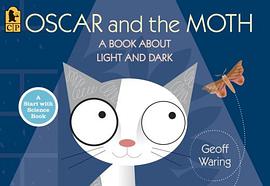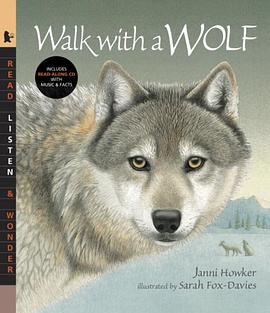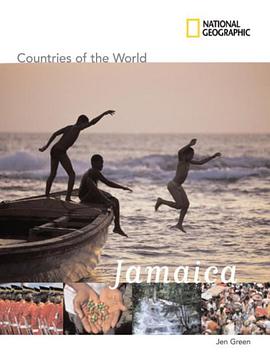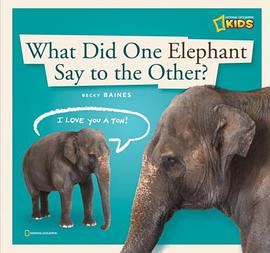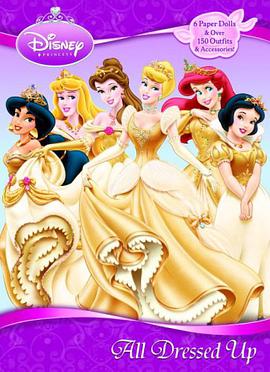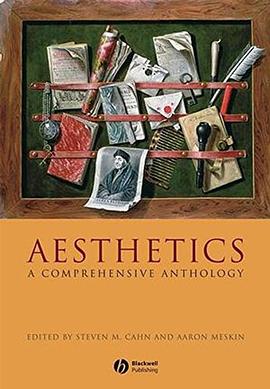

具體描述
From Plato's Ion to works by contemporary philosophers, this anthology showcases classic texts to illuminate the development of philosophical thought about art and the aesthetic. This volume is the most comprehensive collection of readings on aesthetics and the philosophy of art currently available.
Brings together the most significant writings in aesthetics and philosophy of art from the past 2500 years
Each section includes a useful introductory essay which provides an overview of developments in the field
Broken down into three sections: Historical Sources, Modern Theories, and Contemporary Aesthetics and Philosophy of Art
Thorough, systematic, and flexible, including two alternative tables of contents (historical and topical); an ideal textbook and guide to the field
著者簡介
圖書目錄
Edited by Cahn and Meskin.
Preface.
Part I: Historical Sources.
1. The Modern System of the Arts: Paul Oskar Kristeller.
2. Ion: Plato.
3. The Republic: Plato.
4. Symposium: Plato.
5. Poetics: Aristotle.
6. Ennead I, vi: Plotinus.
7. Of Music: St. Augustine.
8. On the Reduction of the Arts to Theology: St. Bonaventure.
9. Characteristics of Men, Manners, Opinions, Times: Third Earl of Shaftesbury.
10. Inquiry into the Origins of our Ideas of Beauty and Virtue: Francis Hutcheson.
11. Of the Standard of Taste: David Hume.
12. Philosophical Inquiry into the Origin of our Ideas on the Sublime and the Beautiful: Sir Edmund Burke.
13. Laocoon: Gotthold Lesing.
14. Critique of Judgment: Immanuel Kant.
Part II: Modern Theories.
15. Introduction to Modern Theories: Christopher Janaway.
16. Letter of an Aesthetic Education of Man: Friedrich Schiller.
17. Philosophy of Art: Friedrich J.W. Schelling.
18. The Philosophy of Fine Art: Georg W.F. Hegel.
19. The World as Will and Representation: Arthur Schopenhauer.
20. The Beautiful in Music: Eduard Hanslick.
21. The Birth of Tragedy: Friedrich Nietzsche.
22. What is Art?: Leo Tolstoy.
23. Psychical Distance as a Factor in Art and as an Aesthetic Principle: Edward Bullough.
24. Art: Clive Bell.
25. Aesthetics: Benedetto Croce.
26. The Principles of Art: R.G. Collingwood.
27. Art as Experience: John Dewey.
28. Feeling and Form: Susanne Langer.
29. The Work of Art in the Age of Mechanical Reproduction: Walter Benjamin.
30. The Origin of the Work of Art: Martin Heidegger.
31. Aesthetic Theory: Theodor Adorno.
32. Truth and Method: Hans–Georg Gadamer.
Part III: Contemporary Aesthetics and Philosophy of Art.
33. Introduction to Contemporary Aesthetics: Susan Feagin and Aaron Meskin.
34. Aesthetic Problems of Modern Philosophy: Stanley Cavell.
35. The Role of Theory in Aesthetics: Morris Weitz.
36. The Artworld: Arthur Danto.
37. What is Art? An Institutional Analysis: George Dickie.
38. When is Art?: Nelson Goodman.
39. Identifying Art: Noel Carroll.
40. The Myth of the Aesthetic Attitude: George Dickie.
41. Art and its Objects: Richard Wollheim.
42. What a Musical Work Is: Jerrold Levinson.
43. Aesthetic Concepts: Frank Sibley.
44. Beauty Restored: Mary Mothersill.
45. Categories of Art: Kendall Walton.
46. Appreciation and the Natural Environment: Allen Carlson.
47. The Intentional Fallacy: W.K. Wimsatt and Monroe Beardsley.
48. The Postulated Author: Critical Monism as a Regulative Ideal: Alexander Nehamas.
49. Art Intention and Conversation: Noel Carroll.
50. The Ethical Criticism of Art: Berys Gaut.
51. Expressive Properties of Art: Guy Sircello.
52. Style and Personality in the Literary Work: Jenefer Robinson.
53. Emotions in the Music: Peter Kivy.
54. Fearing Fictions: Kendall Walton.
55. Oppressive Texts, Resisting Readers and the Gendered Spectator: Mary Devereaux
· · · · · · (收起)
讀後感
評分
評分
評分
評分
用戶評價
Organised in three periods: premodern since the Greek, after the seven liberal arts turned into seven mechanical arts, from Baumgarten came Kant; modern struck on the German and Marxist aesthetics, with Dewey opposite Wilde; contemporary begins upon Wittgenstein turns to contextualism in Danto, the issue of authorship to come.
评分Organised in three periods: premodern since the Greek, after the seven liberal arts turned into seven mechanical arts, from Baumgarten came Kant; modern struck on the German and Marxist aesthetics, with Dewey opposite Wilde; contemporary begins upon Wittgenstein turns to contextualism in Danto, the issue of authorship to come.
评分Organised in three periods: premodern since the Greek, after the seven liberal arts turned into seven mechanical arts, from Baumgarten came Kant; modern struck on the German and Marxist aesthetics, with Dewey opposite Wilde; contemporary begins upon Wittgenstein turns to contextualism in Danto, the issue of authorship to come.
评分Organised in three periods: premodern since the Greek, after the seven liberal arts turned into seven mechanical arts, from Baumgarten came Kant; modern struck on the German and Marxist aesthetics, with Dewey opposite Wilde; contemporary begins upon Wittgenstein turns to contextualism in Danto, the issue of authorship to come.
评分Organised in three periods: premodern since the Greek, after the seven liberal arts turned into seven mechanical arts, from Baumgarten came Kant; modern struck on the German and Marxist aesthetics, with Dewey opposite Wilde; contemporary begins upon Wittgenstein turns to contextualism in Danto, the issue of authorship to come.
相關圖書
本站所有內容均為互聯網搜索引擎提供的公開搜索信息,本站不存儲任何數據與內容,任何內容與數據均與本站無關,如有需要請聯繫相關搜索引擎包括但不限於百度,google,bing,sogou 等
© 2025 book.quotespace.org All Rights Reserved. 小美書屋 版权所有





